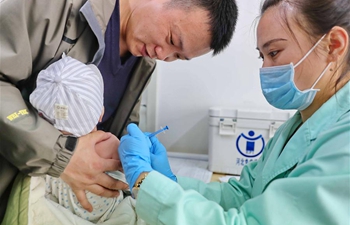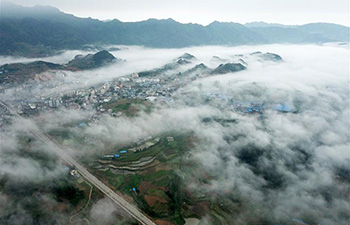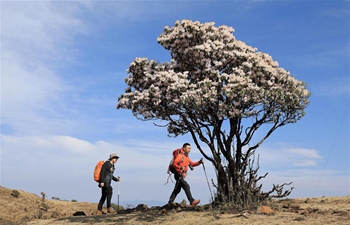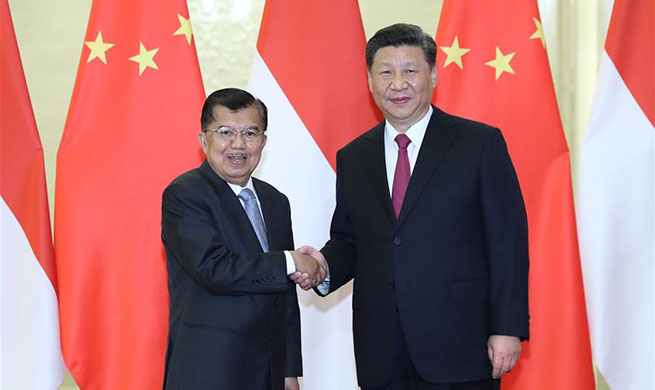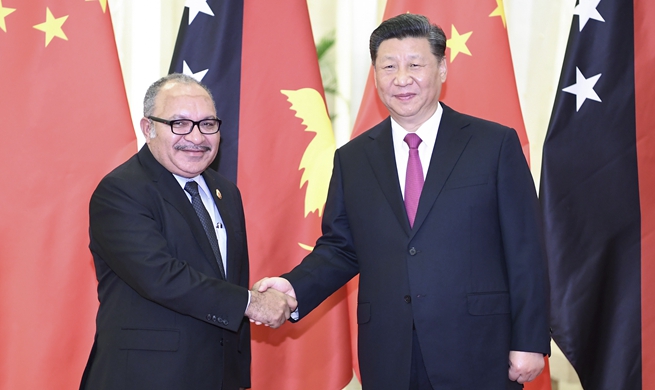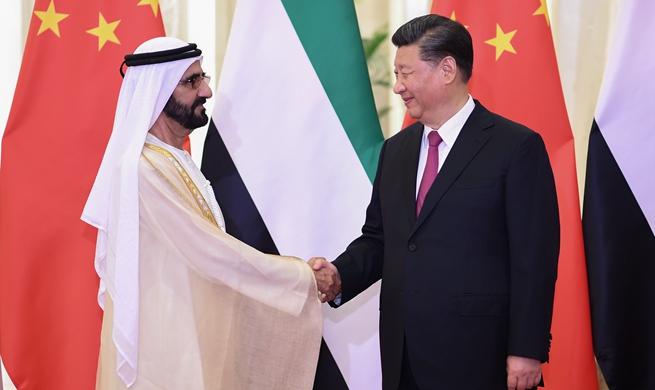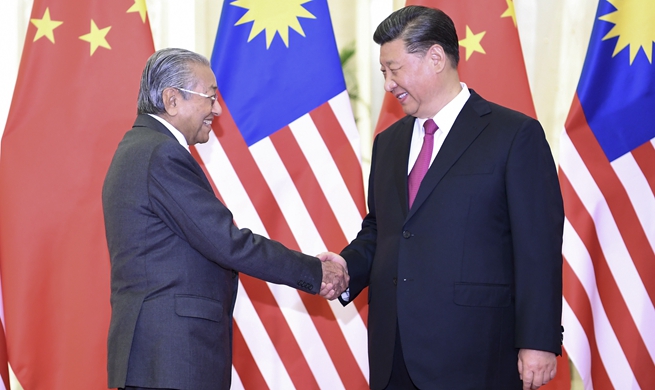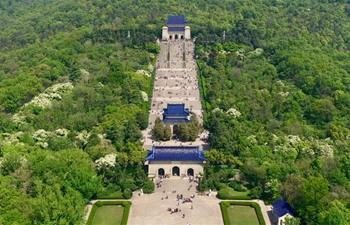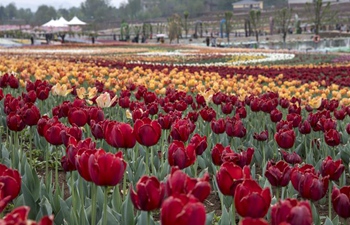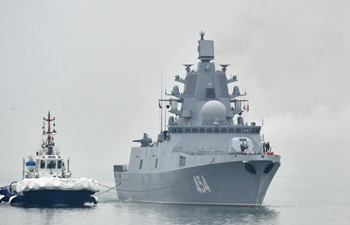BANGKOK, April 26 (Xinhua) -- Thailand supports China's Belt and Road Initiative (BRI), which stimulates economic growth in Asia as well as the world, and is consistent with strategies of Thailand, Thai Prime Minister Prayut Chan-o-cha said late on Thursday.
In a written reply to Chinese media before his departure from Bangkok to attend the 2nd Belt and Road Forum for International Cooperation in Beijing, Prayut described the BRI as an initiative seeking to promote connectivity among Asia, Europe, and Africa and closer relations between countries with a view to advancing sustainable development through increased trade, investment, and various projects on connectivity.
The Thai prime minister spoke highly of the BRI which has made rapid progress in the past five years with numerous infrastructure projects, economic corridors and industrial zones in countries participating in BRI cooperation, and the BRI cooperation has also extended to legal affairs, culture, energy, taxes, and public health.
Prayut also said the BRI reflects China's dream to enhance regional cooperation and connectivity on a trans-continental scale, to promote sustainable development and the well-being of the peoples across the region and the world at large.
"China's active engagement with the international community in developing the BRI, emphasizing extensive consultation, joint contribution and shared benefits has created a sense of ownership among BRI members and therefore, a sustainable framework of cooperation."
He said, "The BRI has created a sense of strengthened multilateralism to address shared challenges in our current world of rapid and complex changes."
The prime minister also emphasized the need for countries participating in BRI cooperation to work closely together to synergies their development policies in these areas to complement each other.
On Thailand's part, Prayut said "Thailand shares BRI objectives, which are similarly included in our 20 year National Strategy, our Thailand 4.0 policy, and cooperation frameworks at the sub-regional and regional levels in which Thailand has played an active role."
The prime minister said that an increasing number of Chinese investors have expressed interest in investing in the Eastern Economic Corridor (EEC), which aims to develop three costal provinces of Chachoengsao, Chonburi and Rayong into high-value added industrial zone in recent years due to the BRI.
Prayut also said that he is pleased that conglomerate of Thai, Chinese, and Japanese businessmen have won the bid to construct a high-speed train linking the three airports, Bangkok's Don Mueang, Suvarnabhumi and U-Tapao in Rayong, a flagship infrastructure project under the EEC.
The prime minister also put forward that Thailand and China can jointly promote seamless connectivity between the Guangdong-Hong Kong-Macao Greater Bay Area (GBA) and the EEC, and increase China's cooperation with the region by leveraging on the high potential of the region's various frameworks and initiatives, Prayut said, naming ACMECS (Ayeyawady-Chao Phraya-Mekong Economic Cooperation Strategy), the Mekong-Lancang Cooperation and the Master Plan on ASEAN Connectivity 2025.
Being the ASEAN chair in 2019, Thailand seeks to develop a Seamless ASEAN through regional connectivity, which includes both infrastructure development as well as rules and regulations harmonization, with ASEAN Master Plan on Connectivity 2025 (MPAC 2025) being their blue print, the prime minister said.
He noted that Thailand seeks to expand connectivity beyond ASEAN to promote greater synergies between MPAC 2025 and BRI, etc for ASEAN integration and regional prosperity.
"Thailand and ASEAN can collaborate with China through the BRI in exchanging best practices and experiences in areas such as the harmonization of rules and regulations, digital innovation, people-to-people linkages, challenges from the 4th Industrial Revolution, and sustainable development. Furthermore, Thailand is keen to join hands with fellow ASEAN member states and China to increase activities between our peoples and strengthen people-to-people relations."
Talking about his expectations to attend the 2nd BRF, Prayut said in the reply that the forum will enable attending leaders to discuss the future direction of collaboration, and serve as another platform for Thailand to strengthen ASEAN's cooperation with China to promote connectivity in all dimensions.
Thailand plans to articulate our vision to drive forward the BRI among countries participating in the BRI cooperation to achieve sustainable funding for projects, to promote public private partnerships and to develop human resources, the prime minister added.

